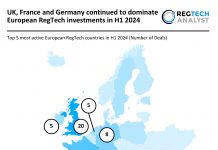As the clock ticks down to the adoption of the revised EMIR reporting standards in the EU (April 29, 2024) and the UK (September 30, 2024), understanding and complying with these expanded obligations is crucial.
MAP FinTech recently offered advice on how it can help firms overcome reporting challenges.
These standards have amplified the scope of pertinent fields, escalating from 129 to 203 in the EU, and to 204 in the UK. After the elimination of 13 fields, we are left with the addition of 87 new fields in the EU and 88 in the UK. This has also involved significant modifications to around 100 fields regarding their name, description, acceptable values, or a combination of these factors.
The growth in the number of fields presents a sizeable hurdle for reporting entities. They must now identify new fields, source the necessary information, and integrate them into their standard reporting cycle.
One notable addition is the introduction of the “Event Type” field, which, together with the “Action Type” field, creates 56 unique and acceptable combinations of values. This significantly alters the lifecycle event management and requires specific actions within the entity’s reporting system to capture these events accurately and incorporate them into the reporting workflow.
Here’s a brief overview of some of the new field-related changes introduced by EMIR REFIT:
- Unique Product Identifier (UPI) obligations
- Crypto-asset-related derivative flag
- Post Trade Risk Reduction (PTRR) related fields
- New Action Type values
- Event Type field
- Delta
These new fields pose a unique challenge for firms as they have to identify and localize these fields, obtain them, and ultimately incorporate them seamlessly into the reporting cycle.
The increased number of EMIR REFIT fields adds to the complexity of an already intricate task. It necessitates coordination among reporting counterparties to ensure accurate completion and prevent unnecessary pairing and matching issues.
If not managed properly, the increase could lead to a heightened risk of more rejections from Trade Repositories (TRs) and matching failures. Firms will also have to handle larger files, creating additional overheads in terms of processing resources, storage requirements, and complexity.
MAP FinTech is prepared to assist companies with these challenges. It offers valuable guidance in understanding which reportable fields are pertinent to any specific trading model and activity. It also ensures the seamless integration of data, and its approach reduces the reporting burden on entities.
The Polaris web portal simplifies field management for reporting entities. Its algorithms are designed to automatically identify relevant actions in the client’s trading system or data and map them to the appropriate action and event types in reporting.
Additionally, the Polaris reporting platform features validations that catch potential rejections at an early stage, ensuring compliant reporting frameworks despite the increase in the number of fields.
With a history as a leading global regulatory technology provider and billions of successful transactions reported under the European Market Infrastructure Regulation (EMIR), MAP FinTech is equipped to help navigate your regulatory obligations. It claims its team of experts are ready to help companies transition smoothly to the changes in reporting requirements introduced by EMIR REFIT.
Read the story here.
Keep up with all the latest FinTech news here
Copyright © 2023 FinTech Global
Copyright © 2018 RegTech Analyst






